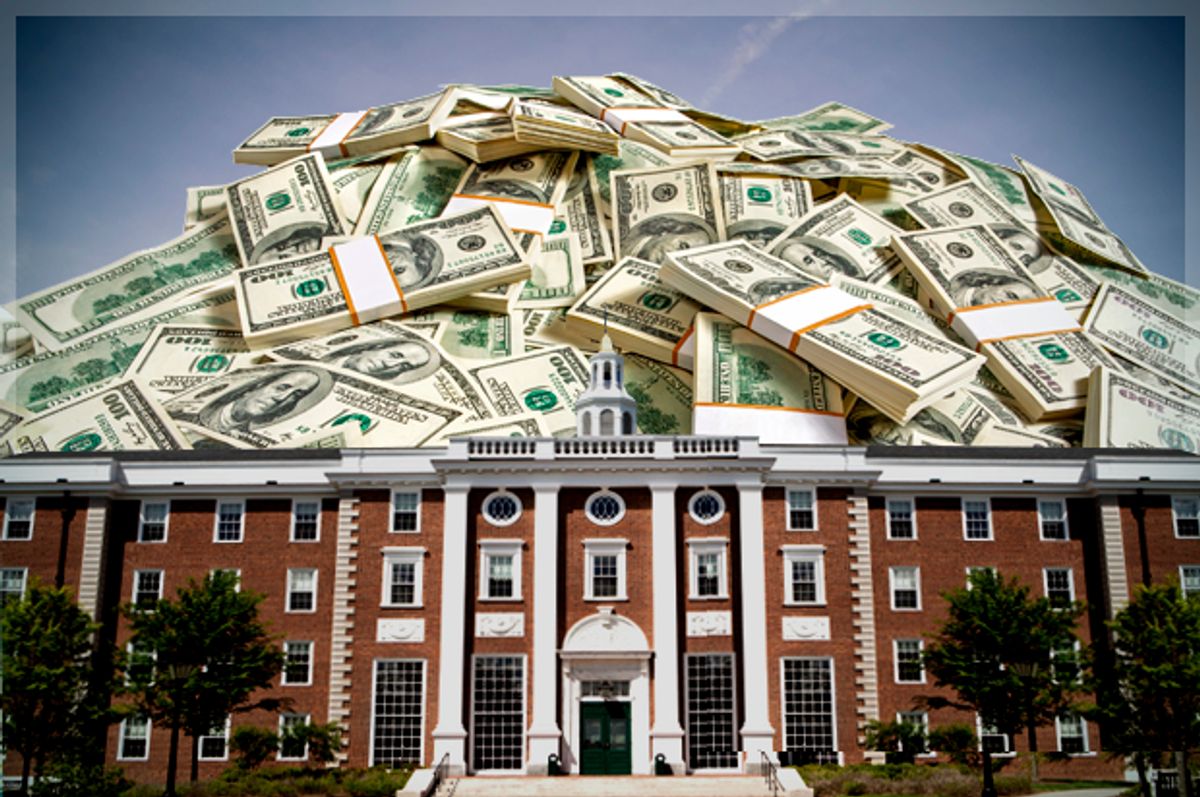You would think that America’s most elite universities would be able to identify a few savvy financial advisers. But this year the managers of some of the world’s largest university endowments turned in the kinds of underwhelming performances that could get them flunked out of school.
Consider the latest numbers from these ivory towers: Stanford, Dartmouth and University of Pennsylvania recently reported year-over-year losses in their endowments of from 0.4 percent to 1.9 percent. And even the investment gurus overseeing Yale University’s $25.4 billion fund, which reported one of the highest returns reported so far this year, 3.4 percent, failed to match gains made by a benchmark index of standard investment portfolios.
And then there’s lofty Harvard University, with the world’s largest academic endowment: Its holdings shrunk 2 percent to $35.7 billion in the fiscal year ended that June 30.
“As crass as it might be to say, money makes Harvard go round,” quipped the Harvard Crimson in an editorial this week. “We are a nonprofit institution of higher learning, but educating young people is expensive.” (Indeed, it is — just ask any underfunded public university or recent college grad suffering under a mountain of student loan debt.)
The poor performance from these elite private universities comes amid a decline across all college funds in the U.S., which posted their worst returns since the 2009 recession. College endowments worth more than $500 million have lost a median of 0.73 percent for the 12 months ending June 30, according to Wilshire Trust Universe Comparison Service of Wilshire Associates, which tracks the performance of university endowments.
But Ivy League schools are supposed to be different. Yet the track records of their well-paid fund managers haven’t outperformed simple, traditional investment portfolios comprised of 60 percent in U.S. stocks and 40 percent in bonds. The benchmark 60/40 portfolio of the Wilshire 5000 Total Stock Market Index for U.S. equities and the Wilshire Bond Index returned 4.5 percent in the fiscal 2016 year that ended June 30.
Harvard Management Company, which oversees the university’s endowment, reported that its cumulative returns have returned less profit than 60/40 portfolios based over the past decade. Harvard’s 10-year average return peaked in 2000 and has declined ever since.
Part of the reason why these endowments are floundering is that their managers became enamored with alternative investments like hedge funds and private equity, which for years delivered handsome returns to the small group of elite investors that funded them. But since 2000 the returns have gradually diminished as more and more investors have gotten on board.
While the 2009 financial crisis should have been a warning not to dive too deeply into exotic alternative investments, those running the endowments at these Ivy League schools continue to be lured by higher returns and have eschewed safer bets. Now some schools are feeling the pain of not switching back to less sexy, more reliable traditional investments. And since Harvard tends to lead the way in endowment management, expect to see similar problems trickling down to less well-endowed institutions.
Nobody should be concerned that these universities will close up shop; they have massive treasure chests, wealthy alumni donors and government subsidies to tide them over (even as state schools face steep budget cuts). And, of course, they regularly pass on costs via tuition increases. But you have to wonder why among institutions of higher learning, if nowhere else, the rich aren't getting richer.



Shares